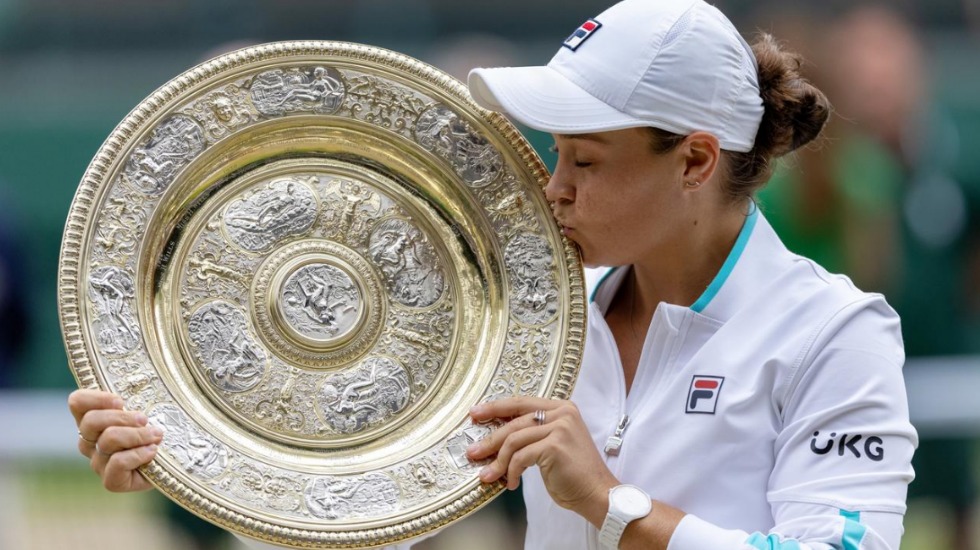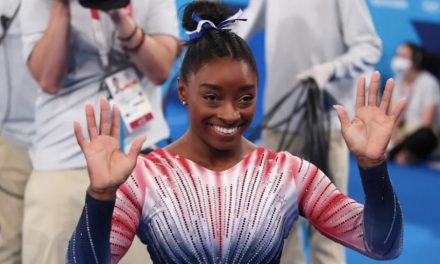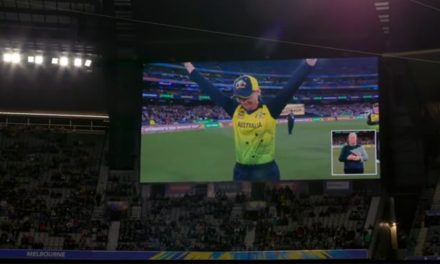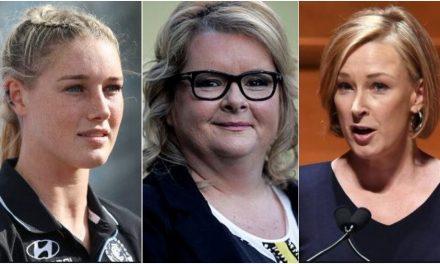Ashleigh Barty became Australia’s first woman in over four decades to win Wimbledon on the weekend. Photo: GETTY IMAGES
Long before I started flexing my feminist muscle, I watched the 1992 film A League of Their Own, by ground-breaking director Penny Marshall and starring Geena Davis.
It’s a story inspired by the inaugural season of the All-American Girls Professional Baseball League in 1940s USA – which was founded to keep interest in baseball ticking along while male players were away fighting in World War II.
One line stood out to me back then. The general manager of the league addresses the players: “Every girl in this league is going to be a lady.”
I now understand the full significance of those words.
They sum up the troubled relationship between sport and femininity. Above all else, no matter how strong, talented and powerful a woman athlete is – she must be a ‘lady’.
In the Oxford dictionary, a ‘lady’ is described as a woman who is polite and well educated, has excellent manners and always behaves well: His wife was a real lady. You could at least try to behave like a lady.
Put simply, ‘lady’, an Old English word from the mid-fifth century, carries assumptions about how a woman should act. She should be virtuous, she should be modest and she should be selfless – ‘God’s Police’ to give it an Anne Summers Australian context.
In our modern society, the term ‘lady’ doesn’t work for women athletes or the rest of us for that matter.
We are women.
And we are not just one type. Thank goodness. We are gloriously different, and we’d rather not come with an outdated list of beliefs and expectations about what we should say, what we should wear and what we should do.
The male equivalent is ‘gentleman’ but, not surprisingly, it hasn’t overstayed its welcome the same way ‘lady’ has.
The ‘gentle’ from gentleman has largely been dropped, yes it rears its head from time to time, but it doesn’t carry all the musty baggage that ‘lady’ brings with it.
Last Saturday night as I settled in to watch Ash Barty take on Karolina Pliskova in the Wimbledon final, I cringed.
“Welcome to the ladies’ singles final.”
Even though I’m well aware it refers to itself in this way, I can’t help but find the reference utterly jarring.
PLEASE HELP US CONTINUE TO THRIVE BY BECOMING AN OFFICIAL FOOTYOLOGY PATRON. JUST CLICK THIS LINK.
The ladies’ singles have been played concurrently with the gentlemen’s singles at The Championships since 1884. However, there is a difference: the gentlemen’s tournament is more commonly referred to as the men’s – not only by players, but also by the commentators and the fans.
Has anyone ever asked you if you can get them ‘tickets to the gentlemen’s final on Sunday’?
Surely it wouldn’t be that difficult, or controversial, for the All England Lawn Tennis Club to drag itself into the 21st century and rebrand the tournament as ‘men’s’ and ‘women’s’.
They shouldn’t stop there. The champion’s board hangs on the wall like a giant anachronism.
Evonne Goolagong Cawley’s name near the top left of the board is written as “Mrs R Cawley”. The “R” stands for her husband Roger and Cawley is his surname. He must be delighted.
Chris Evert’s 1981 victory is recognised as “Mrs J.M Lloyd”. John Lloyd is her former husband. He never made it past the third round.
And the unmarried champions all have “Miss” before their name.
Juxtapose this with the men’s board. There’s no “Mr” or “Master”. Just their name.
It’s not hard to fix.
If the gender equality angle isn’t the All England Club’s cup of tea, it should at least consider the zeitgeist.
Women’s sport is on the rise globally – gone are the days of having to search for the word ‘woman’ in a conversation about sport.
It’s out! And it’s loud and it’s proud.
The W is something to be celebrated.
Consider the change to the Australian sporting landscape in recent years.
We have AFLW, NRLW, WBBL and the W-League.
These sports are unapologetically played by women. Actual women. Not a type of woman from a bygone era tottering around in ruffles, lace and a bonnet.
The way we use language carries weight. It matters.
Sexist language not only reinforces the notion men are superior, it also perpetuates male privilege in society.
Language shapes us and our culture. As we evolve, our use of language should too.
A League of Their Own has come to mean so much to so many women around the world. The message that women belong in a field usually reserved for men is a powerful one – and it goes a long way to unshackling old fashioned ideas of womanhood.
Whether it’s work, or life, whether it’s baseball, football, netball, hockey, or indeed any sport, it’s okay to get ‘dirt in the skirt’.
And that’s not something a ‘lady’ would approve of.
This article was first published by Siren: A Women in Sport Collective












